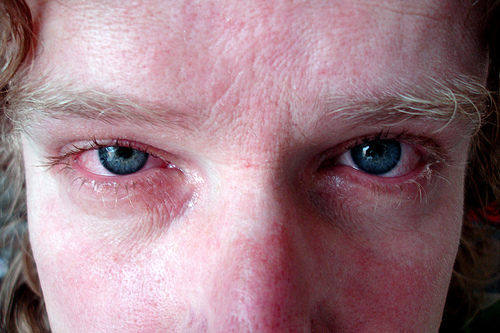
Image Source: Pixabay
When you call an HVAC professional for service or repair, you’re looking forward to a warmer home in winter. In the summer, you’re eager to feel coolness wafting through your home. Don’t forget about good air quality. Pollen, dust, mold, and bacteria can worsen existing respiratory symptoms. A good HVAC technician can assist with improving your indoor environment.
1. Household Air Pollutants Can Make You Ill

Image via Flickr by Marco Raaphorst
After the HVAC technician has left your home, you may not worry much about feeling ill. However, if your HVAC system wasn’t fully serviced, or if you or your technician neglected to change out the old filter with a new one, you may be inhaling particulates or other indoor air pollutants in your home. You or your family members may develop upper respiratory symptoms. Such indicators include coughing, scratchy throat, runny nose, itchy eyes, wheezing, or trouble breathing.
2. Improve Your Family’s Respiratory Health
A clean furnace filter sharply reduces the risk of upper respiratory signs inside your home. The most important function of the air filter is to catch particulates and pollutants that contaminate the air you breathe. When your HVAC system is on, it pulls outside air into your home. Before that air circulates throughout your home, the filter helps trap potential irritants. The end result is warm or cool pollutant-free air moving through every room.
You should change your filter at least every three months. However, you may need to replace your filter more often if you have allergies or pets. Check it monthly. Keep track of the date it is changed by writing the date on the papered side, if possible. Ductwork can get pretty dirty throughout the year. Call a professional to come to your home and vacuum out your HVAC ductwork. By having the ducts cleaned professionally every five to seven years, mold and bacteria can’t take hold.
3. Poor Indoor Air Quality Worsens Illnesses
Your air conditioner uses water to help cool your home down. Small amounts of water remain once you’ve turned your air conditioner off. That water is a perfect environment for bacteria and mold to grow. If you or anyone in your family already suffers from a breathing condition, such as asthma, chronic obstructive pulmonary disease (COPD), or emphysema, poor indoor air quality can worsen these issues. In addition, children can adopt respiratory problems as they age due to air contaminants. Those with allergies won’t find relief; in fact, they will likely experience allergic reactions more often.
Maintain your HVAC system with the help of an HVAC technician. Additionally, consider having your air ducts cleaned to improve the air quality. Outdoor and indoor pollutants and allergens get trapped in there. They recirculate when your system kicks on. After the cleaning job has been completed, the air should be much healthier for you and your loved ones. Cleaning out the ductwork also gives your HVAC system a break, thus increasing energy efficiency.
Once you achieve optimal indoor air quality, maintaining that quality is vital to healthy everyday living. You’ll be able to help your family stay healthy from asthmatic attacks and other upper respiratory issues.
About The Author:
Ryan is a freelance writer primarily focusing on tech and health topics. When she’s not writing, she enjoys going to the beach and spending time with her family.




